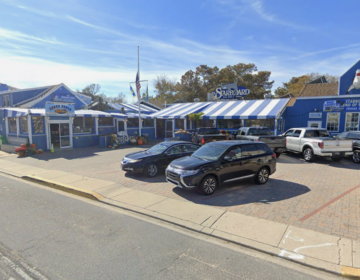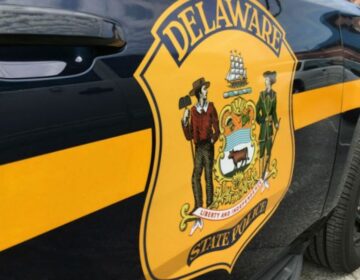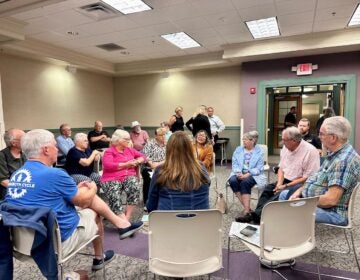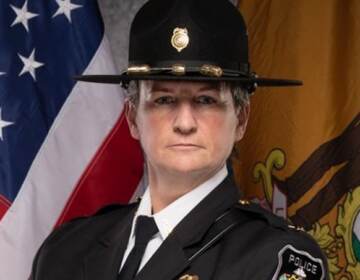Eight months after mandating police body cams statewide, Delaware program not off the ground
It’s “disheartening” that state police and some two dozen smaller agencies still don’t have body cameras, says lawmaker who sponsored the mandate.
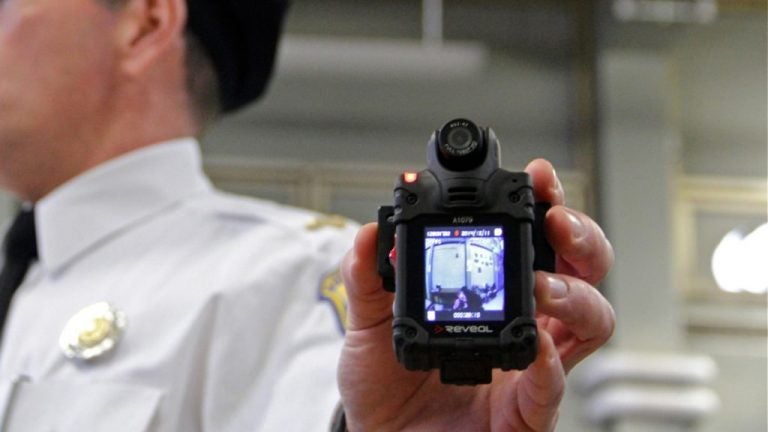
Nearly 1,000 Delaware police still do not have body cameras. (Emma Lee/WHYY News)
More than eight months ago, when a Delaware law requiring every state police force to equip its officers with body cameras went into effect, political leaders hailed it as a watershed moment.
Politicians, lawmakers, police leaders and justice reform advocates proclaimed with great fanfare that the public and prosecutors will now have video evidence for every police shooting and use of force case.
“It’s not just the camera itself and setting up the system that goes behind it,’’ Gov. Carney said while signing the bill into law at the state police troop in Bear.
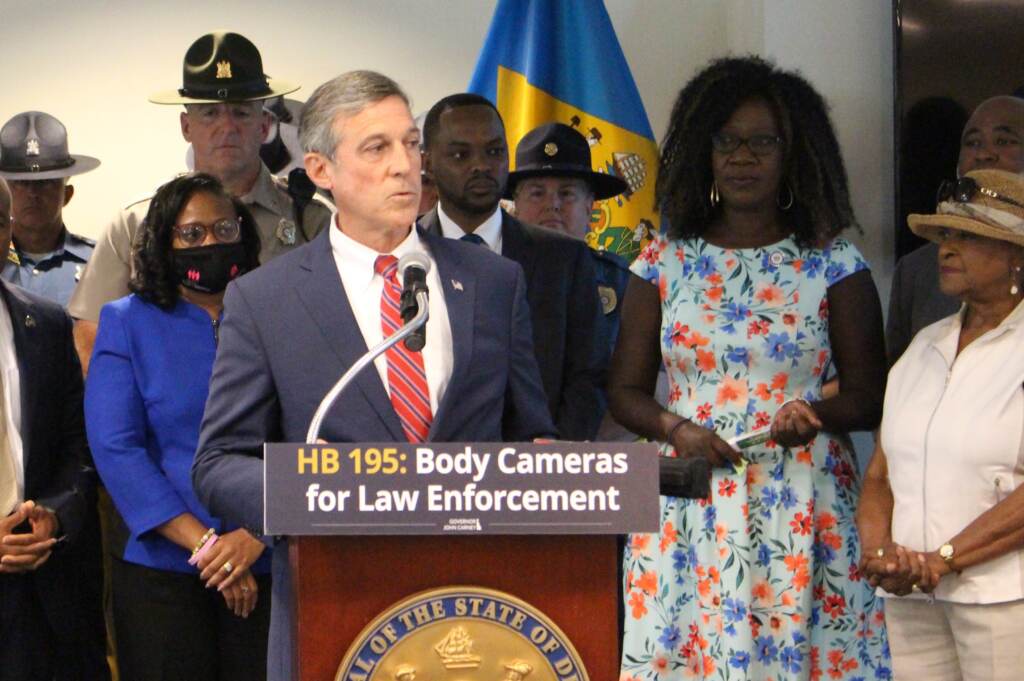
“For me, it’s more about the trust that something like this is creating between law enforcement and the communities in which they serve, particularly communities of color. That is so critically important for law enforcement to do their jobs and for our communities to be safe.”
Fast forward to 2:30 a.m. on March 19 in Dewey Beach.
That’s when a town cop shot and killed 21-year-old Rodney K. Robinson II as he ran down an alley after he was reported carrying a gun at the popular Starboard restaurant and bar.
The Dewey officer wasn’t wearing a body camera, however.
That’s because the Dewey police are not yet in compliance with the law. Nor are the Delaware State Police and about two dozen smaller municipal forces, WHYY News found during a review of how the law is being implemented.
The rollout has been delayed by bureaucratic red tape and the slow pace of government purchasing, bid procedures and hiring, as well as the work of a panel convened to create policies to govern the use and storage of cameras and footage.
Those issues have prevented the Department of Safety and Homeland Security from implementing the program to purchase the cameras for about 1,000 officers and set up a central system to store the videos. The total cost budgeted for through fiscal year 2024 is $18 million.
The cameras themselves won’t even be bought until sometime this summer, officials said.
Homeland Security Secretary Nate McQueen, the former state police superintendent, would not agree to be interviewed about the delayed rollout.
But spokesman Arshon Howard said in a written statement that agency officials have “been working diligently to complete the many steps needed to build the program framework. The full framework of this new program is multifaceted and includes contracting, drafting regulation, vendor selection, and hiring and training staff to manage and review data.”
The bottom line, though, is that for the Dewey Beach shooting and potentially others by police in forces without cameras, prosecutors still don’t have that critical tool to help decide whether or not the officers broke the state law for using deadly force. The cameras can also shed light on other controversial police encounters with residents.
More than 20 of the state’s nearly 50 police forces — including New Castle County, the second-largest — do have cameras.
Wilmington, which has the third-largest force, started a bodycam program on its own since the law was passed, and Dover is doing the same, with an expected start date within weeks, Sgt. Mark Hoffman said.
Howard of Homeland Security said other police forces have done so as well but did not specify which ones.
‘Whatever the holdup is in this moment is beyond me’
The revelation that Dewey Beach police, state police and some two dozen other agencies still don’t have cameras rankles state Rep. Sherry Dorsey Walker, chief sponsor of the legislation that passed in June and was signed by Carney on July 21.
That day, Dorsey Walker called the law “a game-changer in police-community relations.”
But this week, after learning of the delayed rollout, she called the situation “disheartening.” She knew the rollout would take several months but expected cameras to be in use statewide by January at the latest.
“Whatever the holdup is in this moment is beyond me,’’ Dorsey Walker said. “But whatever the situation is that’s preventing officers from having these cameras, we need to figure that out sooner than later because the cameras are to protect the community as well as the officers. But if the camera is not activated, then what is the protection for both?”
Attorney General Kathy Jennings, whose office includes the Department of Civil Rights and Public Trust that investigates all police shootings and use of force that results in serious injury, would not comment on the delay.
Coby Owens, who heads police reform advocacy for the state NAACP, said cameras are “supposed to address discrepancies of what happens.”
Robinson was Black, said Owens, but the race of the officer has not been released. A 2020 WHYY News investigation found that Black males are disproportionately shot and killed by police in Delaware, a state where no officer has ever been charged for a shooting.
In the Dewey shooting, for example, the cameras could have shown what the officer, a 1.5-year veteran who has not been identified, saw before he fired. That would help authorities decide whether another officer in the same situation would have been justified in using deadly force under a new, tougher standard for police that lawmakers also passed last year.
“It’s very concerning that they have not taken the steps to to equip their officers with the proper up-to-date code, which is having the body worn cameras,” Owens said of Dewey and other agencies still not in compliance.
“This is exactly why [the law] was so important to get passed, so that if incidents like this do happen, we have the officer’s point of view in real time that everyone else can see. And we can see what truly happened that unfortunate night.”
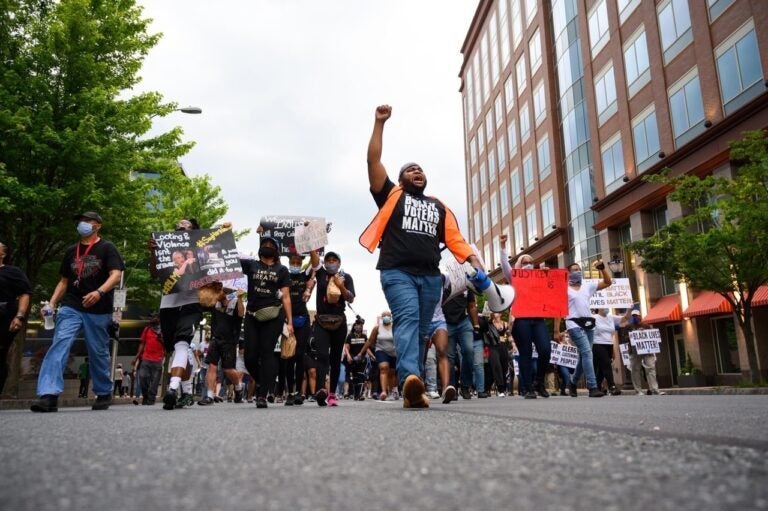
He urged Homeland Security to hustle up.
“It was mandated by the General Assembly and by the governor, by him signing it,’’ Owens said. “The community wanted it, wanted it overwhelmingly. It’s now time to do their jobs to make sure it’s implemented in every department.”
‘Not just as simple as, here’s a camera’
Howard’s statement detailed some steps taken so far by Homeland Security. Among them:
- A committee focused on police training spent several months drafting regulations governing the cameras’ ”use, activation, electronic storage, and dissemination.” The public has been invited to give feedback, and the panel will meet in April to discuss the policies.
- Three vendors were picked to provide the cameras and in December, after an extension to receive more information from prospective vendors, Axon Enterprise, Inc. was selected to provide hardware, software and other equipment to store and retrieve the data.
- The hiring process for digital evidence technicians began in February, and once those jobs are filled, training will be needed.
The state police, which has more than 700 officers, had a pilot camera program in 2016 but did not implement a program afterward.
Master Cpl. Heather Pepper said, however, that state police are committed to having body cameras and realize their importance.
“This initiative remains a priority as we are currently hiring and training civilian employees to manage digital evidence associated with this program,’’ Pepper said. “We are also aggressively working towards ensuring each trooper receives the necessary training.”
Todd Mumford, vice president of the Delaware Fraternal Order of Police, said the delays are understandable as officials work to start a solid, sustainable program, especially the issues around storage. He stressed that the union wholeheartedly supports body cameras for officers.
“It’s very technical in nature, obviously,’’ Mumford said. “It’s not just as simple as, you know, here’s a camera, we’re going to download it on here. It has to be on a secure server so that the data can’t be manipulated and all those kinds of things. And that kind of stuff takes a lot of time, especially if you’re using a large database like this.”
“This stuff is going to be evidence potentially in criminal proceedings. It has to be a higher level of security, It’s not something you want to get wrong.”

Show your support for local public media
WHYY is your source for fact-based, in-depth journalism and information. As a nonprofit organization, we rely on financial support from readers like you. Please give today.



